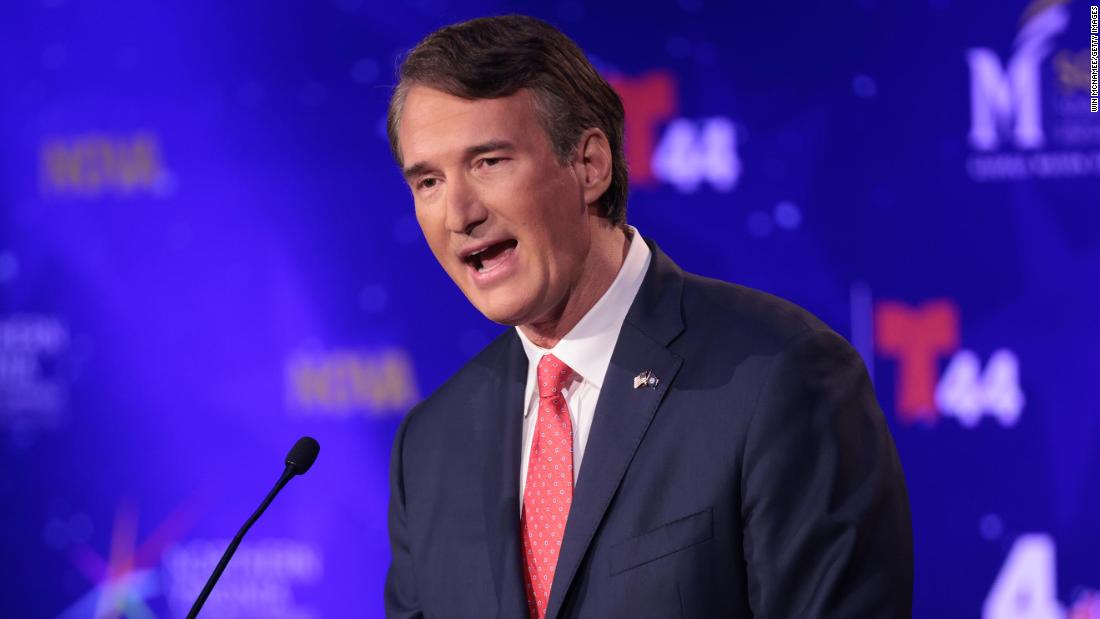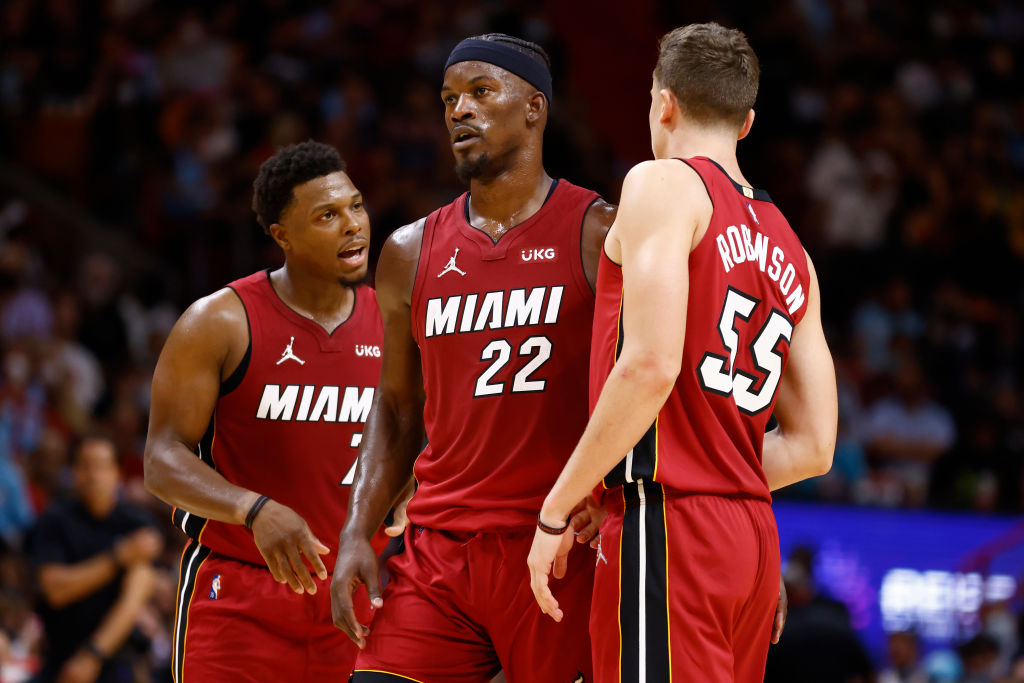
(Trends Wide) — Republican Glenn Youngkin defeated Democrat Terry McAuliffe in the Virginia gubernatorial race Tuesday night, Trends Wide projects, reversing progressive gains in Virginia by becoming the first Republican to win state office since 2009.
McAuliffe’s defeat in a state that President Joe Biden won by double digits last year showed the enormous challenges Democrats face next year as they try to maintain control of the US House and Senate. McAuliffe, who served as governor from 2014 to 2018 in a state that does not allow successive terms, had struggled to find a message that would galvanize Democrats at a time when Biden’s approval ratings have plummeted and the party has not. been able to convey a clear message amid disputes over the president’s agenda in Congress.
Virginia and New Jersey each have a historical pattern of electing governors in off-year elections that are from the party opposite the occupying White House. McAuliffe challenged that pattern when he won his first term in 2013, a year after then-President Barack Obama won reelection. New Jersey Governor Phil Murphy expected voters to reward him for his handling of the covid-19 pandemic and make him the first Democratic governor to win re-election in the state in more than 40 years. But when the ballots were counted Tuesday night, Republican Jack Ciattarelli was performing much better than expected, another red flag for Democrats in a state that Biden won by nearly 16 points. The race remains too close to project a winner.
McAuliffe hoped to win a second, non-consecutive term by linking Youngkin to former President Donald Trump. But that strategy failed: It failed to convert the Democrats McAuliffe needed to maintain Youngkin’s momentum and his gains among independent voters. The dynamics provided a warning for some Democrats who hoped to use that strategy to defeat their Republican opponents next year in the midterm elections. Voters’ bad moods also appeared to be a factor in New Jersey’s race for governor that was much closer than expected.
Virginia Democrats clearly underestimated Youngkin, a nimble candidate who delved into local issues like education and portrayed himself as an advocate for parental rights. The Republican successfully kept Trump at arm’s length but praised him early in the race, managing to avoid alienating his supporters while successfully making a play for critical voters in the northern Virginia suburbs who rejected Trump last year.
As of late Tuesday night, Youngkin was outperforming the previous Republican gubernatorial candidate four years ago and also significantly outpaced Trump’s margins in Virginia’s suburbs, which had been trending increasingly Democratic. McAuliffe’s margins, by contrast, fell below numbers in previous contests by Biden and current Virginia Democratic Gov. Ralph Northam in key areas across the state.
McAuliffe briefly appeared before his fans Tuesday night, but did not concede the victory. “We still have a lot of votes to count,” he said. “We are going to continue counting votes.”
McAuliffe had made a gamble by focusing his campaign on the idea that Youngkin was a “hopeful” for Trump. In the closing days of the election campaign, he referred to Youngkin as “Glenn Trumpkin” and argued that a Youngkin victory in Virginia would embolden Trump ahead of a possible White House bid in 2024, but that argument does not appear to have energized Democratic voters like McAuliffe had hoped. Youngkin took advantage of some of Trump’s rhetoric to appeal to the Republican base, invoking certain culture war issues and talking about “electoral integrity” early in the race, for example, but he stayed away from the tele-rally that Trump held. Monday night
Preliminary results from Trends Wide’s Virginia exit poll showed the difficult headwinds McAuliffe faced as he tried to weather discord within his party. Only 43% of Virginians said they approve of Biden’s job performance, and a narrow majority of voters described the Democratic Party as too liberal overall; while fewer voters described the Republican Party as too conservative.
About a third of Virginia voters rated the economy as the most important problem facing the state, according to the exit poll. Just under a quarter said education was the most important, about 15% chose taxes, about 14% said the covid-19 pandemic. Only about a tenth chose abortion.
Virginia voters held negative views of both Biden and Trump. Only about a fifth of voters said they see their vote as a way of expressing their support for Biden, and nearly 3 in 10 said it is a way of expressing opposition, and the remaining half of the electorate said that Biden was not. a factor.
Despite McAuliffe’s efforts to demonize Youngkin as a Trump warrior, who has said that the former president “represents a large part of the reason I am running,” the Republican campaign featured him as a Northern Virginia father. non-threatening who wears wool vests and a businessman who coaches basketball in his spare time.
Youngkin courted suburban voters by digging into the GOP’s culture wars, vowing to protect law enforcement funds amid concerns about rising crime nationwide, rejecting COVID-19 vaccination mandates. for teachers and state workers, and promising that Virginia schools will not “teach our children to see everything through the lens of race.” At a time when the electorate has increasingly embraced newcomers to politics, Youngkin described his rival as the typical politician who was a former chairman of the Democratic National Committee and a major fundraiser for Bill and Hillary Clinton for decades.
In a message to suburban women, Youngkin denounced that McAuliffe would allow the government to stand between parents and their children when it comes to education, taking advantage of a comment by the Democrat in a debate that he did not believe that “parents they should be telling schools what to teach. “
One of Youngkin’s closing announcements featured Fairfax County mother and conservative activist Laura Murphy claiming that a book her high school son was assigned to read was causing her nightmares. The book, whose name is not mentioned in the ad, was “Beloved” by Toni Morrison, which deals with the horrors of slavery. Murphy had led a campaign against the teaching of the Pulitzer Prize-winning novel, leading to two bills, ultimately vetoed by McAuliffe, that would have allowed parents to reject certain assignments they considered explicit.
Democrats jumped at the ad, and McAuliffe called it a “covert racist message” and argued that his Republican opponent was using education to divide Virginia by pitting parents against parents and parents against teachers.
A tough push for Democrats despite Virginia’s recent blue streak
McAuliffe fought the exhaustion of Democratic voters, a more energetic Republican base, and Biden’s dwindling popularity. A chaotic pullout from Afghanistan, a delta-driven spike in COVID-19 and a sluggish economy have taken their toll on Biden, who has struggled to rally his party around his agenda.
Progressive and moderate Democrats in Congress have spent months arguing about the size and scope of the president’s climate and social safety net package, but even if there had been a vote on that $ 1.75 million economic plan and a Accompanying bipartisan infrastructure Tuesday this week would have been too late to propel McAuliffe into a state where early voting began weeks ago.
With no tangible achievement to note from a Democratic-controlled Washington, McAuliffe made no secret of his frustration. He demanded that members of Congress “do their job and give up posing,” in an interview with Trends Wide.
The national mood has soured amid lingering fears, restrictions and frustrations related to the covid-19 pandemic and the uncertain economic recovery. Voters are concerned about inflation, the higher prices they are paying as the holiday season approaches, and supply chain bottlenecks that have disrupted the economy. Trends Wide’s latest polling poll finds the president 42% approve and 51% disapprove among American adults, and in a national NBC News poll released Sunday, 7 out of 10 said the country is going in the wrong address.
The debates featured stark policy contrasts between the two candidates. Youngkin had argued that McAuliffe’s plans for government spending were too expensive and said he would fuel an economic revival in Virginia by cutting taxes, including the “grocery tax” that Youngkin said would save Virginians US $ 1,500 in the first year of implementation.
McAuliffe had promised a $ 2 billion investment in education, double the amount he proposed in his first term, and touted 20 plans he had developed to lift the state out of the covid pandemic. He also called for COVID-19 vaccination mandates for state teachers, healthcare workers and other essential employees, arguing that Youngkin’s resistance to those measures would jeopardize the state’s recovery.
Youngkin said that while he asked everyone in Virginia to “please get vaccinated,” he believes firing workers who don’t comply with vaccination mandates could cripple the state financially.
“We need people at work. To make life difficult, that’s not the way to serve Virginians,” Youngkin said in the final debate of the candidates. “We can do this. In fact, we can protect lives and livelihoods.”





